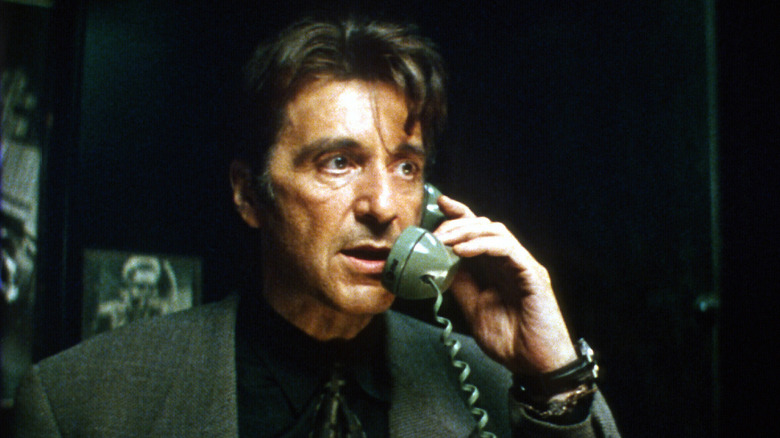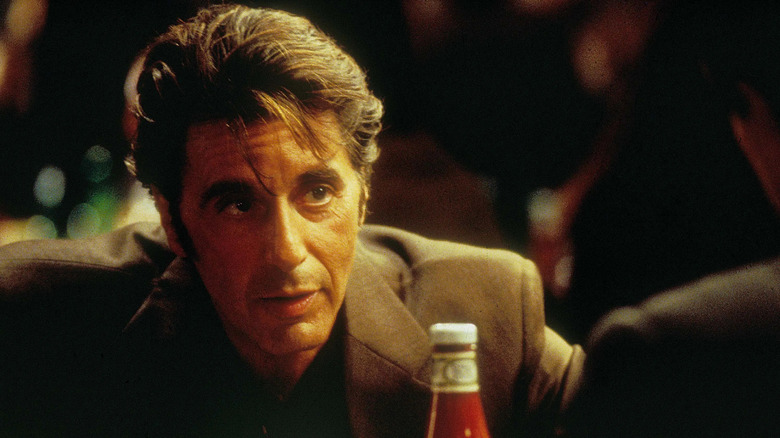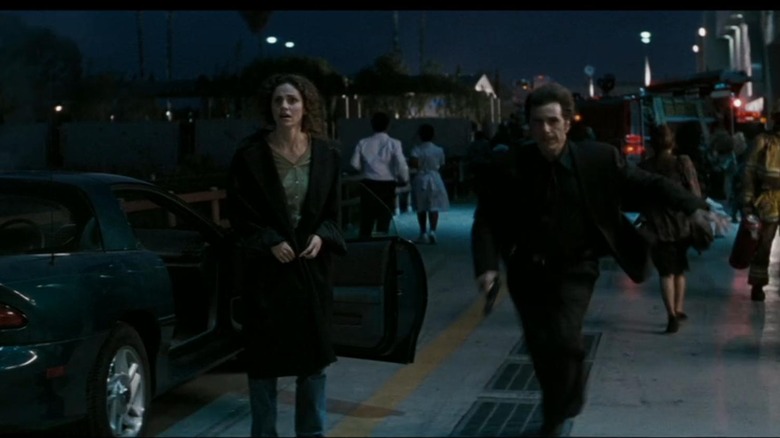
Michael Mann has been clear that 1995's "Heat" is a drama and not a crime movie. But even when the audience is in on the mystery from the very start, and knows what the criminals are planning, Mann is able to make the story compelling through the characters' cat-and-mouse investigation of each other.
As was one of Mann's goals for the film, "Heat" paints a full picture of the private lives of Al Pacino's Vicent Hanna and Robert De Niro's Neil McAuley. Consistent with the film's title, Hanna's escalating efforts to subdue McAuley drive the plot, with each constantly trying to outsmart the other. Only at great cost does Hanna finally catch McCauley. In Mann's other films, like "Thief" (1981), "Collateral" (2004), and "Miami Vice" (2006) — though he rotates between spending time with cops, criminals, or civilians — characters are similarly in regular search for insight into how their enemy operates.
Mann is clearly interested in the clue-seeking of it all, and it ties directly to a personal theory he has about genre storytelling.
A Mirror Image

In a 2017 interview with LA Weekly, Mann was asked directly about whether he would compare the dynamic between detectives and criminals to that between directors and their characters, touching on his philosophical view around the genre. He answered:
"I've got a theory, which probably holds no water whatsoever, about why there's so much genre content in media — meaning police stories, crime stories, so much of that. It's because of the nature of the medium. Detectives detecting do what writers and directors do in the inverse: We have an idea for a character, and our character has origins that we invent. Those origins become an engine that causes him to do certain activities and express himself and have different attitudes based on who the character is. And then those activities have consequences and leave behind certain effects."
Mann did not need to wholly invent his characters' origins, but instead took direct inspiration from Chicago detective Chuck Adamson and former Alcatraz inmate turned prolific thief Neil McCauley. Mann has characterized Adamson as a "predator" best summarized by Hanna's line, "All I am is who I'm going after." From the real McCauley, Mann borrowed the "professionalism" that Adamson himself attributed to the career criminal. The two actually met face-to-face at a restaurant in 1964, during which Adamson said, "You realize that one day you're going to be taking down a score, and I'm going to be there." The next time they saw each other, after a grocery store robbery went wrong, Adamson took McCauley's life.
Though "Heat" has a basis in history, Mann has said it took him quite some time to decide it would end similarly to the true story. Only then could he begin to reverse engineer his film from true events.
Playing The Detective

In Mann's view, the writer or director takes on the role of inventing the characters' origins, which then drive their decisions, detectives have the opposite charge. Mann explained:
"...a detective works all the way at the other end. He sees the remains of a crime — the leavings. He starts to work backwards to what happened. What was the activity? And if this was the activity, what could I discover about the motivations of the person whose identity I do not know? And how can those motivations allow me to predict his future activity, so that I can intercept him and find out who he is?"
This is how Mann depicts Hanna in "Heat" and particularly in the film's final moments. With the true-to-history diner scene, Mann sets up Hanna's success. Because the detective sought a face-to-face opportunity, he learns more about McCauley's inner life, including the existence of his girlfriend, Eady (Amy Brenneman). McCauley, who is usually disciplined, later has a gap in judgment (in a scene Mann described as difficult to shoot) when he impulsively abandons Eady to chase after Waingro (Kevin Gage). Hanna is able to connect that the woman alone in the car must mean McCauley is nearby. As the final showdown plays out, the roles of both director and detective come to an end, with the characters' decisions leading them to their fates, and the detective's case closed.
The logic of these stories helps to explain why writers are attracted to these kind of stories, but Mann never fully explained why audiences love them so much. In the case of Mann's films, the intensity and realism that he brings is enough to turn a detective story that is only a mystery to its characters into a compelling drama for actual moviegoers.
Read this next: The Best Movies Of 2022 So Far
The post Heat Exemplifies Michael Mann's Theory On Genre Films As A Whole appeared first on /Film.
0 Comments